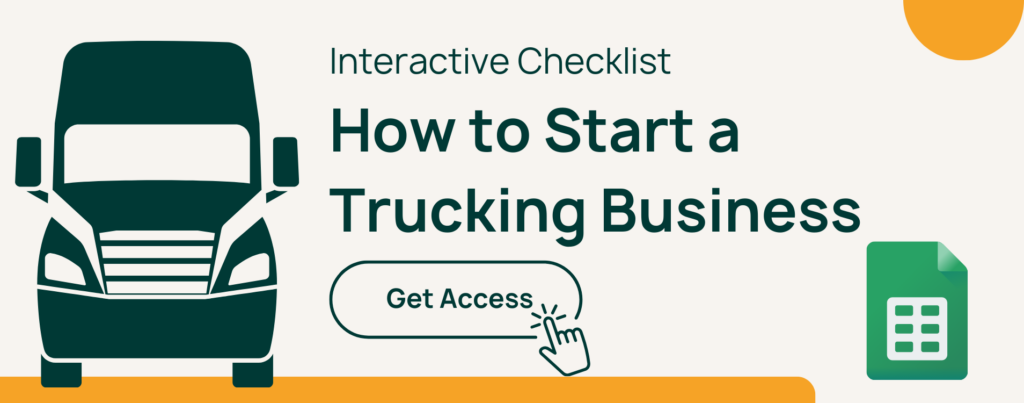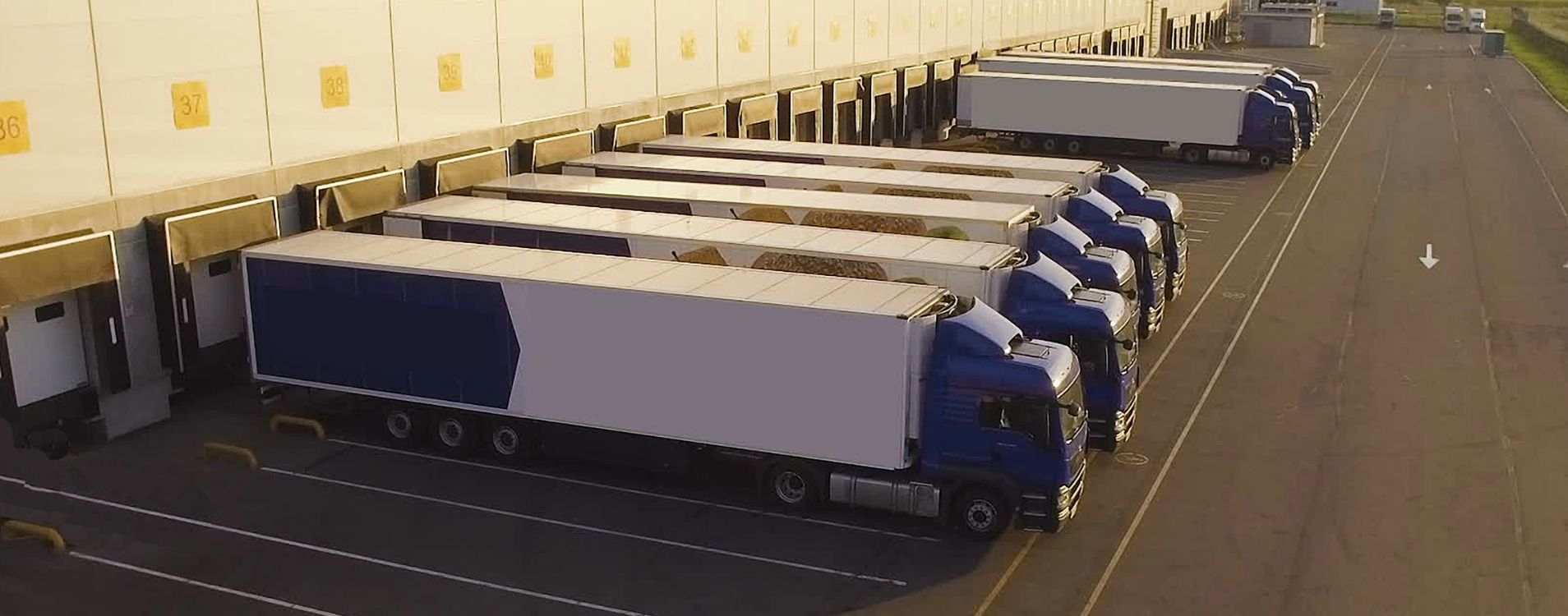How To Find Loads For A New Trucking Company
Booking loads for a new trucking company in the first 6-12 months is like getting your first job right out of school. The first job is the hardest and every one after that is easier to get if you do well. Because you’re new, you don’t have a track record and many brokers won’t want to work with you until you’ve proven to be safe and reliable.
But not to worry! We’ve been working with new authorities for nearly a decade. Every trucking business has to start somewhere. Here’s what you need to know about the freight market and strategies for booking loads as a new trucking company.
Leer este artículo en español.
Subscribe to our YouTube channel for more videos!
The Difference Between Freight Contract And Spot Rates
Before we dive into the strategies for finding loads, let’s get back to the basics. You may have heard people talk about contract and spot rates, or the contract and spot markets. What’s the difference?
A contract rate is what it sounds like: a rate that’s been defined by a contract. This is when a broker or shipper works with a carrier to move freight for a certain period of time at a fixed price. For example, a broker may have the same load of candy bars they need to be moved from Detroit, Michigan to Louisville, Kentucky three days a week for three months. The broker will find a carrier for this work and sign a contract with them for a fixed amount, say $2.25 per mile.
On the other hand, when a carrier bids on and books a load from a load board that needs to be moved the same or the next day, this is called the spot market. It’s short-term pricing defined in the moment by the laws of supply and demand. More trucks available and less freight to move means lower rates. Fewer trucks available and more freight to move means higher rates. While the laws of supply and demand also apply to contract work, the spot rates change rapidly, moving with the market from day to day whereas contract rates are set for the duration of the contract.

Booking contracts as a carrier offers more stability and predictability while booking on the spot market can be risky and volatile. Government contracts, while more difficult to get, can be particularly fruitful, especially if you are a veteran or part of a minority group. However, you are not usually able to renegotiate a contract rate whereas spot rates can be negotiated to make more on each load you haul.
What does this mean for new trucking companies?
As a brand new authority, even if you want to work on contract, you’re likely to need to work the spot market for the first 6-12 months before you’ll have access to the contract market. Brokers and shippers are not only looking for a cheap way to move product – they’re looking for reliability.
Pro Tip: Government contracts, while more difficult to get, can be particularly fruitful, especially if you are a veteran or part of a minority group. Although you may not be eligible for these contracts for a while, getting your Minority Business Enterprise Certification early on will help prepare you for these types of opportunities.

Strategies For Booking Loads As A New Carrier
Load Boards
A load board is an online marketplace that matches shippers, brokers, and carriers on a job-by-job basis. This is where all the non-contracted freight goes. Depending on the equipment you run and the freight you’re authorized to haul, different load boards may be better suited for your business.
Here are our favorite load boards:
- DAT
- Trucker Path
- Omnitracs Sylectus
- ComFreight
- Convoy
- Truckstop
- Direct Freight
- 123loadboard
- Uber Freight
- Shiply
Tips for using load boards
- Check the broker’s credit rating. Some load boards charge a fee for this feature, but it is well worth it. (Of course, if you factor with Bobtail, you don’t pay anything extra to check a broker’s credit rating!) You’re not the only company that needs to establish credibility in this business! Brokers build a credit rating just like you build a personal credit score, by paying their bills in full on time. A good credit rating is an indication that the broker runs a decent business that you want to work with.
- Don’t depend on just one. Diversifying where you look for loads can increase your chances of getting a good rate. When you first start off, you may try as many as a dozen load boards before finding the 2-3 that truly serve you.
- Plan ahead. When dispatching yourself, you might find what looks like an amazing rate. But after delivering the load, you go back on the load boards and find that there are no loads to get you home or that you’ll need to deadhead hundreds of miles to get to the next job. If you can book loads ahead of time, you can string loads from one city to the next to avoid getting stuck.
We provided more tips for using load boards in this article.
Make Friends With Other Owner-Operators, Carriers, And Freight Brokers
Networking is not just about passing out business cards to everyone you meet. It’s about building relationships, i.e. making friends. Remember making friends in school? It’s harder as an adult, but not impossible.
In-person interactions are the most effective way to build new relationships. Joining local or state-wide industry associations and attending events can be a great way to meet people. You may also consider making a list of all the brokers and shippers in your area and sending them a message via email, giving them a call to introduce yourself, or mailing them a postcard with your business’s information.
After delivering your first load, follow up with the broker to say thank you. Let them know how appreciative you are for trusting you with their business and ask for feedback. Here’s an email template you can copy and paste to use:
Dear [Broker’s contact name],
Thank you so much for the opportunity to work with you. As a new company, it can be challenging to find good clients. I hope I will have a chance to work with you again in the near future.
In the meantime, I would really appreciate it if you could give me any feedback about this first load. I look forward to improving with your help.
All the best,
[your name]
However, building your support network is about more than just talking to brokers and shippers. The relationships you build with other owner-operators and carriers can be just as valuable. More experienced owner-operators can help you avoid the mistakes they made when they were starting out. They may even be able to introduce you to new opportunities.
Hire A Dispatcher
Another strategy for finding loads is to hire a dispatcher whose job it is to manage a carrier’s freight in exchange for a percentage of each load. Dispatchers vary greatly in price and quality, so if you go this route, ask trusted sources for recommendations.
On one hand, hiring a dispatcher can free up your time for delivering more loads or managing other aspects of your business. On the other hand, dispatchers charge a significant percentage of revenue and could block you from building your own relationships with clients.
If you decide to use a dispatching service, we still recommend you learn how to dispatch yourself so that when times get tough, you can reduce your expenses by booking your own loads.
Patience Is Key
While you’re likely to haul some cheap freight when you start, you’re in this for the long run. The important thing in those first few months is to establish credibility and build relationships. Don’t compare yourself to other owner-operators who’ve been in the business for many years. You’ll get there one day!




